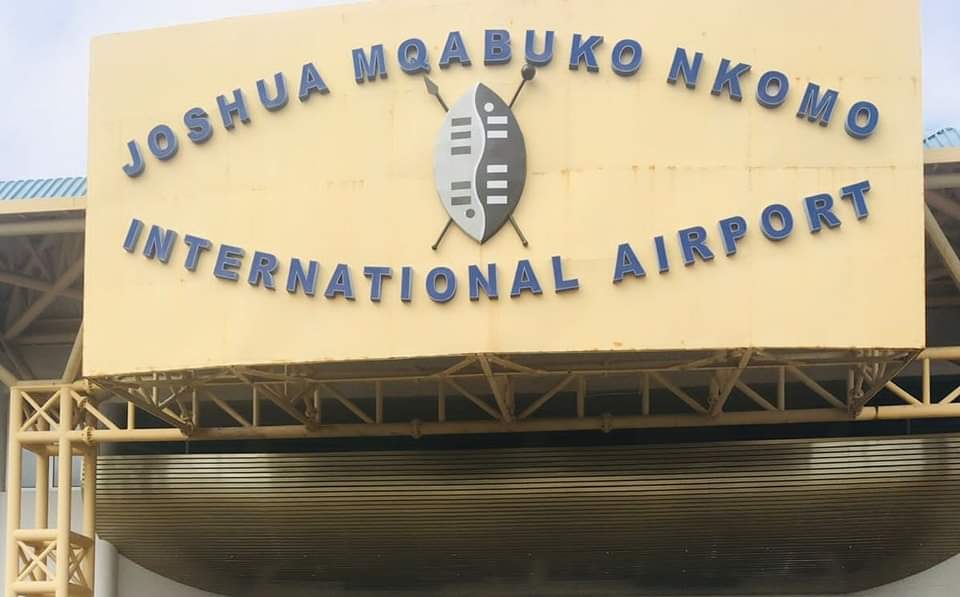The removal and destruction of the iconic shield on the signange at Joshua Mqabuko Nkomo (JMN) International Airport in Bulawayo has opened up debate on nationalism, unity and inclusion in the country.
Participants at a Twitter space, This Morning on Asakhe hosted by CITE Tuesday said instead of creating a sense of solidarity, belonging, and collective identity, the government had continued to create an “us” versus “them” mentality that fuelled divisions in the country.
“It’s a wrong perspective to discuss the removal of the shield as Zimbabweans and beliefs that Zimbabwe is a nation are misplaced because Zimbabwe by its very nature is not a nation. This is confirmed by what actually happened where the heritage symbol was replaced with the Coat of Arms. This itself is a sign that the state is making headway into what we considered national spaces of belonging,” said Dr Brilliant Mhlanga, an academic.
He argued that although the State preaches nationalism as its ideology, it did not mean that Zimbabwe is a nation.
“Zimbabwe by its very nature is a state, which was captured and there’s a group of people who have ownership. The group of people who captured Zimbabwe are actually Shona, that’s why you are complaining seeing Shona symbols all over the state, yes, it’s true,” Dr Mhlanga claimed.
“But let’s understand that nationalism by its very nature is exclusional. It does not include others; it is designed on the parapet of othering. This is what we are seeing when you talk about heritage issues, where you expect the symbols and heritage of the vanquished to be included in the broader symbols of the victors.”
Dr Mhlanga noted that Zimbabwe was constructed by colonisers, therefore so-called national symbols were structures of social construction.
“If you look at Zimbabwe symbols of a state carry with them notions of representations of identity and belonging of that particular group which would have captured the state. In this instance the state was captured by Shona nationalists and they have been purveying the narrative of Shona nationalism as a successor. The narrative of Shona nationalism must be lived through and represented by symbols such as the Great Zimbabwe, the Zimbabwe bird and the name Zimbabwe itself, is a heritage name and has no meaning to you unless you are forced to redefine it in your own way. Mbuya Nehanda was also smuggled into the Zimbabwean currency,” he said.
The academic stated that when Zimbabwe came to be in 1980, it was marked by linguicide, ethnocentrism and massive cultural forms of genocide.
“This was with the aim of making sure that certain sectors of the state, the minority, do not have a contribution and were not invited in the birth of Zimbabwe. That’s why we see Gukurahundi and many other things. Those who capture the state are the ones who do things right now. Yes, we are all angry if we look at what happened, if we are all Zimbabweans but as people of Mthwakazi it should not surprise us,” Dr Mhlanga said.
“Actually, this confirms that from day one, there’s always been such efforts and the Gukurahundi Genocide was only there to give background denominator to the major Gukurahundi that they were then yet to unleash, which is the genocide of cultural and economic structures we are seeing now?
Another participant, Mpikelelo Sibindi, pointed out such exclusionary symptoms were always there.
“If you go to church, Shonalism will want to prevail over Ndebeleism here in Bulawayo. As people we are quiet but wait for something to happen for us to act, whilst these things happen and we watch them,” he claimed
“If we are really concerned by our heritage and culture, let’s regroup and look at things for what they are.”
Another academic, Professor Shepherd Mpofu, advised people to learn how ‘banal’ nationalism could be.
“Nationalism is the everyday symbols and activities that help to make the nation, which ones are those? The smaller things that make people a people. One of the smaller things is that particular shield at the JMN airport, to an extent that its removal has more meaning to the people of Matabeleland,” he said.
Prof Mpofu noted that if in the long run, people lost sight of these small things, they would not have a standing to argue on other things that Zimbabwe was doing to them.
“For me, the destruction of the shield is quite important. Actually, the way it was removed, destroyed and put down while a tape that is similar to that of the crime scene was put around that particular place. It’s actually symbolic if you look at it,” he said, arguing it represented how the Ndebele culture is made to look like a crime scene.
“Zimbabwe has a darker crime scene than the rest of the continent looking at the things that are being done by the current government, undermining the nationhood and identities of people of Matabeleland. This cannot just be dismissed. You cannot make bigger politics without smaller politics. You won’t know who you are. You don’t have language and symbols as they are busy destroying them.”

